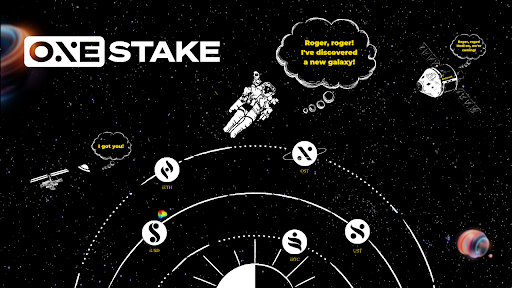The team of professionals working at OneStake is delighted to announce the project’s secret recipe to revolutionize the Decentralized Finance (DeFi) world. The combination between the TVL-as-a-Service protocol and the iTokens mechanism gives OneStake a fascinating competitive advantage in the sector.
As we explain below, the project unveiled a brand new ecosystem that will sound appealing to all crypto enthusiasts and investors.
The First TVL-as-a-Service Protocol
TVL stands for “Total Value Locked” in the crypto world, and it’s an essential idea for this market. If you’re starting a new project in the blockchain industry, the number of people who use your product and the size of your TVL will determine whether or not you will be successful.
Various projects are engaged in an unseen crypto battle for the locked assets of their consumers. For example, a decrease in TVL indicates that the project is losing market traction, and as a result, its value decreases, together with the size of its community.
One of the best ways to enhance TVL is to provide a larger yield than the competition. As a result, additional DeFi users will put their money into these protocols to get significant returns on their investments.
An increase in TVL forces protocols to expand the distribution of their tokens, which in turn causes inflationary pressures. Since tokens depreciate over time, this cycle is plainly unsustainable.
Pools generated by several protocols can be combined into a single OneStake pool. OneStake users invest their money in one of three pools to get the best APR, compound returns automatically, and automatically rebalance invested capital across the various pools.
Stakers can vote on how OneStake’s TVL is divided across aggregated protocols to maximize APR, as outlined by the project’s governance mechanics. The community will decide OneStake’s TVL and the weight each procedure receives.
The iTokens Intuition
DeFi 2.0’s future lies in its use of interest-bearing tokens (or “iTokens”). OneStake significantly alters the notion of DeFi and provides an interest-bearing token — iUSD — whereas all current DeFi protocols require claiming rewards from the pool.
OneStake Protocol’s iUSD token serves as a means of representing and allocating profits for those staking funds. The project boasts the highest APR in the DeFi market using the same mechanisms as an Aave Token.
Abracadabra, Convex, Curve, and Compound are just a few of the whitelisted protocols used in the project’s StablePool. Following a deposit, you will be given iUSD, which is an interest-bearing coin, and its amount on your wallet will grow over time.
About OneStake
With the greatest APR of any DeFi competitors, OneStake is a yield aggregator protocol. From researching new safe high APR techniques to rebalancing and reinvesting gains, the project addresses every difficulty for DeFi users.
Other protocols will benefit from OneStake’s TVL distribution by aggregating, consolidating, and pooling. This mechanism will make the DeFi yield market more efficient for everyone.
With the iToken concept, staked assets may be made liquid and utilized as collateral for leveraged loans. Holding iUSD in your wallet gives you the best APR on the DeFi yield market.
The project is currently looking for VCs and strategic investors to back its ambitious project of changing how DeFi works. Anyone interested in finding out more about OneStake can connect to the project’s website and the social media pages below.












Comments